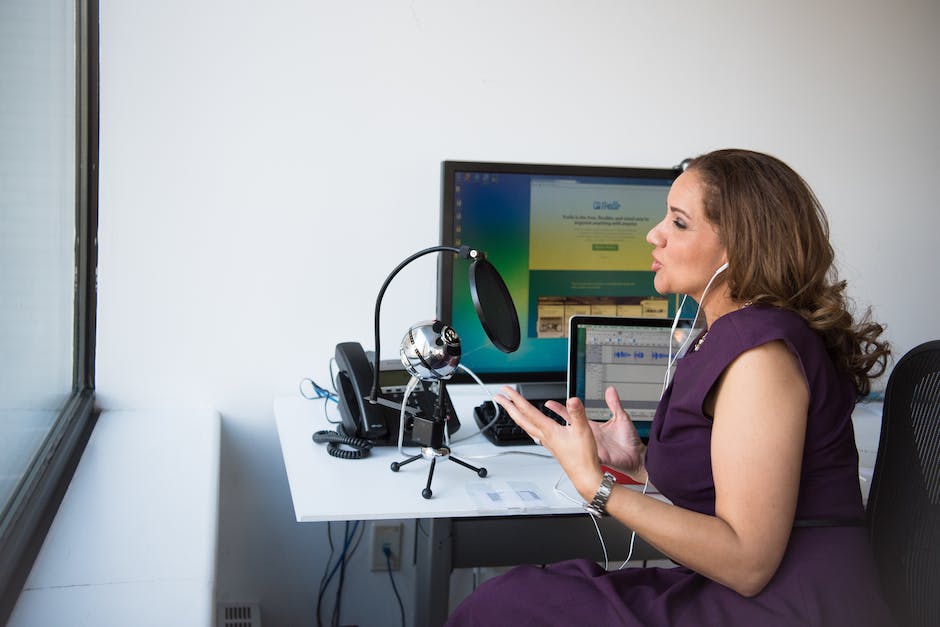Table of Contents
Amplifying Voices, Inspiring Change: Arab Leaders in Podcasting.
Introduction
“Arab Leaders in Podcasting: Amplifying Voices, Inspiring Change” is a podcast that showcases the influential voices of Arab leaders who are making a significant impact in their respective fields. Through engaging conversations and thought-provoking discussions, this podcast aims to amplify the voices of these leaders, providing a platform for them to share their experiences, insights, and ideas. By doing so, it seeks to inspire change, empower individuals, and foster a greater understanding of the Arab world’s diverse perspectives and contributions.
The Rise of Arab Leaders in Podcasting

The Rise of Arab Leaders in Podcasting
In recent years, podcasting has emerged as a powerful medium for individuals to share their stories, ideas, and expertise with a global audience. While podcasting has gained popularity worldwide, it has also provided a unique platform for Arab leaders to amplify their voices and inspire change in their communities. This article explores the rise of Arab leaders in podcasting and the impact they are making.
One of the key reasons behind the surge in Arab leaders turning to podcasting is the accessibility and convenience it offers. Unlike traditional media outlets, podcasting allows individuals to create and distribute content without the need for expensive equipment or a large production team. All that is required is a microphone, a computer, and an internet connection. This low barrier to entry has empowered Arab leaders to share their perspectives and experiences with a global audience, breaking down geographical and cultural barriers.
Moreover, podcasting has provided a platform for Arab leaders to address important social and political issues that are often overlooked or misrepresented in mainstream media. Through their podcasts, these leaders can delve into topics such as human rights, gender equality, and political reform, providing a nuanced and authentic perspective that challenges prevailing narratives. By doing so, they are not only raising awareness but also inspiring their listeners to take action and effect change in their own communities.
One notable example of an Arab leader making waves in the podcasting world is Rana Nawas, the host of the popular podcast “When Women Win.” Through her interviews with successful women from various fields, Nawas aims to inspire and empower women to pursue their dreams and overcome societal barriers. Her podcast has garnered a loyal following, not only in the Arab world but also globally, as listeners resonate with the stories of resilience and triumph shared by her guests.
Another prominent Arab leader in podcasting is Ahmed Alshugairi, the host of the widely acclaimed podcast “Khawatir.” Alshugairi uses his platform to explore philosophical and ethical questions, encouraging his listeners to reflect on their lives and make positive changes. His thought-provoking episodes have sparked conversations and inspired individuals to reevaluate their priorities, leading to personal growth and societal transformation.
The impact of Arab leaders in podcasting extends beyond their immediate audience. By sharing their stories and perspectives, they are challenging stereotypes and misconceptions about the Arab world. Through their podcasts, they are showcasing the diversity, talent, and resilience of Arab communities, fostering a greater understanding and appreciation for their culture and contributions.
Furthermore, the rise of Arab leaders in podcasting has paved the way for collaboration and knowledge-sharing among like-minded individuals. Podcasting networks and communities have emerged, providing a space for Arab podcasters to connect, exchange ideas, and support one another. This sense of community has not only strengthened the podcasting ecosystem but also facilitated the growth and success of Arab leaders in the field.
In conclusion, the rise of Arab leaders in podcasting has provided a powerful platform for them to amplify their voices and inspire change. Through their podcasts, they are challenging prevailing narratives, addressing important social and political issues, and fostering a greater understanding of the Arab world. As podcasting continues to grow in popularity, it is crucial to recognize and support the contributions of Arab leaders in this medium, as they play a vital role in shaping the global conversation and driving positive change.
How Arab Leaders are Using Podcasting to Amplify Voices
Arab Leaders in Podcasting: Amplifying Voices, Inspiring Change
In recent years, podcasting has emerged as a powerful medium for individuals to share their stories, ideas, and experiences with a global audience. Arab leaders, recognizing the potential of this platform, have embraced podcasting as a means to amplify voices and inspire change in their communities. Through their podcasts, these leaders are breaking barriers, challenging stereotypes, and fostering dialogue on a wide range of topics.
One prominent Arab leader in podcasting is Rana Nawas, the host of the popular show “When Women Win.” Nawas, a successful businesswoman herself, uses her podcast to highlight the achievements and struggles of women from diverse backgrounds. Through in-depth interviews, she explores the challenges women face in the workplace and shares strategies for success. By amplifying the voices of these women, Nawas aims to inspire and empower others to overcome obstacles and pursue their dreams.
Another influential figure in the Arab podcasting scene is Omar Tom, the host of “The Dukkan Show.” Tom, along with his co-hosts, uses their podcast to create a space for open and honest conversations about culture, identity, and social issues. Through their engaging discussions, they challenge stereotypes and encourage listeners to question societal norms. By amplifying diverse voices and perspectives, Tom and his team are fostering a sense of unity and understanding among their audience.
Podcasting has also provided a platform for Arab leaders to address pressing social and political issues. One such leader is Ahmed Alshugairi, the host of “Khawatir.” Alshugairi uses his podcast to explore topics such as education, religion, and personal development. Through his thought-provoking episodes, he encourages listeners to reflect on their own beliefs and values. By amplifying these discussions, Alshugairi aims to inspire positive change in Arab societies.
In addition to individual leaders, organizations in the Arab world have also recognized the power of podcasting. One notable example is Sowt, a podcast network based in Jordan. Sowt produces a wide range of shows that cover topics such as politics, culture, and entrepreneurship. By amplifying diverse voices and perspectives, Sowt aims to foster a more inclusive and informed society. Through their podcasts, they provide a platform for marginalized communities to share their stories and experiences.
The impact of Arab leaders in podcasting extends beyond their immediate communities. Through their shows, they are reaching a global audience and challenging stereotypes about the Arab world. By amplifying diverse voices and perspectives, these leaders are breaking down barriers and fostering a greater understanding between cultures.
Podcasting has become a powerful tool for Arab leaders to amplify voices and inspire change. Through their shows, they are challenging stereotypes, fostering dialogue, and addressing pressing social issues. Whether it is through personal stories, thought-provoking discussions, or inclusive platforms, these leaders are making a significant impact in their communities and beyond. As podcasting continues to grow in popularity, it is clear that Arab leaders will play a crucial role in shaping the future of this medium.
Inspiring Change through Podcasting: Arab Leaders’ Impact
Arab Leaders in Podcasting: Amplifying Voices, Inspiring Change
In recent years, podcasting has emerged as a powerful medium for individuals to share their stories, ideas, and experiences with a global audience. Arab leaders have embraced this platform, using it as a tool to amplify their voices and inspire change in their communities. Through their podcasts, these leaders have been able to address pressing issues, challenge societal norms, and foster dialogue on topics that are often overlooked or marginalized.
One such Arab leader making waves in the podcasting world is Rana Nawas, the host of “When Women Win.” This podcast features interviews with successful women from various fields, shedding light on their journeys, challenges, and triumphs. Nawas aims to empower women by showcasing their achievements and providing a platform for their voices to be heard. By sharing these stories, she hopes to inspire other women to pursue their dreams and break through the barriers that hold them back.
Another influential figure in the Arab podcasting scene is Ahmed Alshugairi, the host of “Khawatir.” This podcast delves into philosophical and social issues, encouraging listeners to reflect on their lives and the world around them. Alshugairi’s thought-provoking discussions challenge conventional wisdom and encourage critical thinking. Through his podcast, he aims to spark conversations that lead to positive change and personal growth.
Podcasting has also provided a platform for Arab leaders to address pressing social issues. “Kerning Cultures,” hosted by Hebah Fisher and Razan Alzayani, explores stories from the Middle East and North Africa region, shedding light on topics that are often misunderstood or misrepresented. By sharing these stories, Fisher and Alzayani aim to challenge stereotypes and bridge cultural divides. Their podcast serves as a catalyst for dialogue and understanding, inspiring listeners to question their preconceived notions and engage in meaningful conversations.
In addition to addressing social issues, Arab leaders in podcasting have also used their platforms to advocate for change in their communities. “The Dukkan Show,” hosted by OT, Reem, and Akkaoui, is a podcast that celebrates Arab culture and identity. Through their discussions, they aim to challenge the negative narratives often associated with the Arab world and promote a more positive and nuanced understanding of Arab culture. By showcasing the richness and diversity of Arab experiences, they hope to inspire pride and unity among their listeners.
Podcasting has proven to be a powerful tool for Arab leaders to amplify their voices and inspire change. Through their podcasts, these leaders have been able to address pressing issues, challenge societal norms, and foster dialogue on topics that are often overlooked or marginalized. By sharing their stories and experiences, they have empowered individuals, sparked conversations, and encouraged critical thinking.
As the podcasting scene continues to grow, it is crucial to recognize the impact that Arab leaders have had in shaping the medium. Their dedication to amplifying voices and inspiring change has not only transformed the podcasting landscape but also contributed to a more inclusive and diverse global conversation. By embracing this platform, Arab leaders have demonstrated the power of storytelling and the potential for positive change that lies within each episode. As more individuals tune in to these podcasts, the voices of Arab leaders will continue to resonate, inspiring change and fostering a more inclusive and understanding world.
Exploring the Influence of Arab Leaders in Podcasting
Arab Leaders in Podcasting: Amplifying Voices, Inspiring Change
In recent years, podcasting has emerged as a powerful medium for storytelling and sharing ideas. With its ability to reach a global audience, podcasting has become a platform for individuals to express their thoughts, experiences, and perspectives. Arab leaders have embraced this medium, using it to amplify their voices and inspire change in their communities.
One of the key reasons why podcasting has gained popularity among Arab leaders is its accessibility. Unlike traditional media outlets, podcasting allows individuals to bypass gatekeepers and directly connect with their audience. This is particularly important in the Arab world, where freedom of expression is often restricted. Through podcasting, Arab leaders can share their stories and ideas without fear of censorship or reprisal.
Moreover, podcasting provides a unique opportunity for Arab leaders to address pressing social and political issues. Many podcasts hosted by Arab leaders focus on topics such as human rights, gender equality, and political reform. By discussing these issues openly and honestly, these leaders are challenging societal norms and encouraging their listeners to think critically about the world around them.
One example of an influential Arab leader in podcasting is Rana Nawas, the host of the popular podcast “When Women Win.” Through her podcast, Nawas interviews successful women from various fields, highlighting their achievements and sharing their stories of overcoming obstacles. By showcasing these women as role models, Nawas is inspiring a new generation of Arab women to pursue their dreams and break down barriers.
Another notable Arab leader in podcasting is Ahmed Alshugairi, the host of the podcast “Khawatir.” Alshugairi uses his platform to explore philosophical and ethical questions, encouraging his listeners to reflect on their own lives and values. Through his thought-provoking discussions, Alshugairi is fostering a culture of introspection and personal growth among his Arab audience.
In addition to individual leaders, there are also organizations that are using podcasting to amplify Arab voices. For example, the Sowt Podcast Network, based in Jordan, produces a wide range of podcasts that cover topics such as culture, politics, and social issues. By providing a platform for diverse voices, Sowt is contributing to a more inclusive and vibrant Arab podcasting community.
The impact of Arab leaders in podcasting extends beyond their immediate audience. Through their podcasts, these leaders are challenging stereotypes and misconceptions about the Arab world. By sharing their stories and perspectives, they are humanizing the Arab experience and fostering greater understanding and empathy among listeners from different cultures and backgrounds.
Furthermore, Arab leaders in podcasting are inspiring a new generation of content creators. As more individuals see the power of podcasting to effect change, they are motivated to start their own podcasts and share their own stories. This has led to a flourishing podcasting scene in the Arab world, with new voices and ideas constantly emerging.
In conclusion, Arab leaders in podcasting are using this medium to amplify their voices and inspire change in their communities. Through their podcasts, they are addressing pressing social and political issues, challenging societal norms, and fostering greater understanding among listeners. As the influence of podcasting continues to grow, it is clear that Arab leaders will play a crucial role in shaping the future of this medium.
Q&A
1. What is “Arab Leaders in Podcasting: Amplifying Voices, Inspiring Change”?
“Arab Leaders in Podcasting: Amplifying Voices, Inspiring Change” is a podcast that aims to showcase the voices of Arab leaders and inspire positive change in the Arab world.
2. Who are the target audience for this podcast?
The target audience for this podcast is individuals interested in Arab leadership, social change, and the Arab world.
3. What is the purpose of this podcast?
The purpose of this podcast is to amplify the voices of Arab leaders, share their stories and experiences, and inspire positive change in the Arab world.
4. How can one access this podcast?
This podcast can be accessed through various podcast platforms, such as Apple Podcasts, Spotify, or the official website of “Arab Leaders in Podcasting: Amplifying Voices, Inspiring Change.”
Conclusion
In conclusion, “Arab Leaders in Podcasting: Amplifying Voices, Inspiring Change” highlights the significant role of Arab leaders in the podcasting industry. Through their podcasts, these leaders have been able to amplify diverse voices and inspire positive change within their communities. By providing a platform for open discussions and sharing valuable insights, Arab leaders in podcasting have contributed to the growth of the medium and fostered a sense of empowerment among their listeners. Their efforts have not only brought attention to important social and cultural issues but have also encouraged dialogue and sparked meaningful conversations. Overall, the podcasting landscape in the Arab world has been enriched by these leaders, who continue to make a lasting impact on their audiences.




